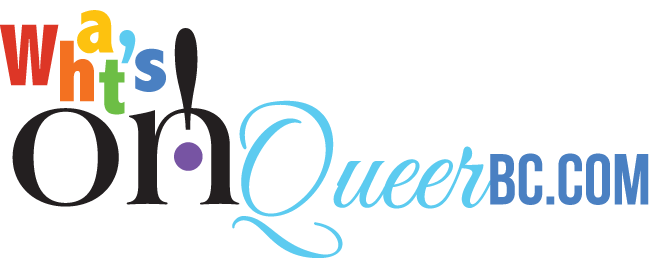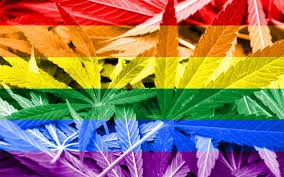Cannabis and the LGBTQ Community
Pride is just around the corner in this city, and for the first time community members will also be able to celebrate the legal use of recreational cannabis. To some this may not seem like a big moment, but it is. It reminds us of how connected cannabis and LGBT communities are. The issues of cannabis legalization and queer rights have been intertwined across Canada and the US for decades.
Cannabis LGBT Activists
Legal medicinal cannabis use was first fought for by activists to alleviate the symptoms of AIDS. In fact, Dennis Peron, whose partner died of AIDS in 1990, co-authored California Proposition 215. This is the law that permits the use of medical marijuana in the state of California. It was the first of its kind nationwide. It is also noteworthy that this law is still in place in California today.
Dennis Peron
In 1996, Peron told the Associated Press that when his partner died, “I didn’t know what I was living for. I was the loneliest guy in America. In my pain, I decided to leave Jonathan a legacy of love. I made it my moral pursuit to let everyone know about Jonathan’s life, his death, and his use of marijuana and how it gave him dignity in his final days.”
Peron was involved in opening, The San Francisco Cannabis Buyers Club, which is believed to be America’s first public dispensary. The dispensary became a well known resource for individuals with HIV and AIDS. Its purpose was simple: Come in for support and camaraderie, as well as an opportunity to buy cannabis. Their goal was to ease the pain and discomfort for all individuals with AIDS with no conditions. If you were short on funds it didn’t matter, you’d be taken care of nonetheless.
Another figure behind Proposition 215 was Mary Rathbun, better known as “Brownie Mary". She was nicknamed for her custom of handing out cannabis brownies to AIDS patients at San Francisco General Hospital. Mary was a longtime volunteer at the hospital during the epidemic’s early days.
Dennis Peron passed away last year and this month, as well as throughout pride, we remember and honour him and contributions he made for the LGBT and Cannabis communities.
Cannabis Compassionate Care in Canada
When members of the LGBT community were suffering, individuals like Dennis Peron and Brownie Mary knew they had to do something. From this struggle came cannabis compassionate care programs. When The San Francisco Cannabis Buyers Club first opened it was not called compassionate care. However, Peron knew individuals in his community needed support and he provided it, regardless of their ability to pay.
Brownie Mary
B.C. Compassion Club Society (BCCCS) was the first cannabis compassionate care program in BC. BCCCS was established in 1997 by Hilary Black. After a heart wrenching moment delivering cannabis to an elder consumer, who Black felt truly needed it, she made it her mission to bring cannabis to as many people as she could. After that experience she said she saw "a big wall. And on one side is this plant, and on the other side is this ocean of people that are suffering, and that their suffering can be affected by breaking down that wall," she said. Breaking down that was exactly what she intended to do.
At the same time, Cannabis As Living Medicine (CALM) was opened in Toronto in 1996 by Neev Tapiero. Located in the heart of Church and Wellesley area, CALM filled an underserved market of people with AIDS looking to ease their pain. “At one point we had hundreds of HIV members when other clubs were just getting on their feet,” Tapiero says. “The legalization of medical marijuana and recreational marijuana is in large part due to dispensaries.”
Cannabis Legalization and LGBT Communities
Compassionate care was so important to the lives of many suffering with AIDS and the terrible side effects of the treatments at the time. Of course this care was and has continued to be extended to individuals with many other health problems and ailments as well.
Though legalization has made cannabis more accessible to some, it has completely changed climate of cannabis sale and consumption. Legalization has made it more challenging for many dispensaries to run compassionate care programs which potentially puts those who need support for health concerns at risk.
The BC Compassionate Care Society is still running in Vancouver as a non-profit. You can donate to help others in need from their website homepage
Cannabis and LGBT issues are still connected because it is not accessible to everyone, and those who are not able to get it legally for a number of reasons; including, location and accessibility of dispensaries, cost, etc. Therefore those who still obtain cannabis illegally may face penalties. Those people are disproportionately LGBT and other minorities.
Any prohibitions generally affect those who are the most oppressed the greatest. So, while we all celebrating how far we have come, we also need to be aware of who is still being left behind and who can use our support. Cannabis and LGBT communities will continue to be entwined.
Cannabis and Vancouver Pride 2019
The big question that many people will be asking the week leading up to pride is “Where can I legally buy cannabis in Vancouver?”
Thankfully since legalization in October of 2018 the list of legal dispensaries has been continually growing. The Vancouver Sun has an interactive map of all the locations in BC that is regularly updated for all your cannabis needs.
Though for Vancouver Pride specifically there are a few on the list that will be most convenient if you are attending events in the city (especially if you are from out of town and staying downtown).
The closest to downtown is City Cannabis Co. located at 610 Robson St, Vancouver. There are also a location or two in Kitsilano, Mount Pleasant, East Van or South Van if you are living in or staying in those areas check out the map for those locations.
The follow up question to this will likely be, “Where am I allowed to light up?” or “I’m with a few friends at the parade, am I allowed to smoke a joint?”
So here are the basics of Cannabis Law in Vancouver as of summer 2019.
1. The legal age to buy, possess and consume cannabis ia 19 years of age
2. Cannabis smoking and vaping is permitted in all the same locations that cigarette smoking is permitted; as well as prohibited in the same locations as smoking is prohibited including playgrounds, sports fields, skate parks, and other places where children commonly gather.
3. Adults are allowed to possess up to thirty grams.
Enjoy yourself this pride season. Remember to consume substances responsibly, drink lots of water and apply enough sunscreen.
Thumbnail Photo by Michael Fischer from Pexels



